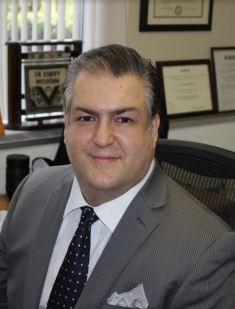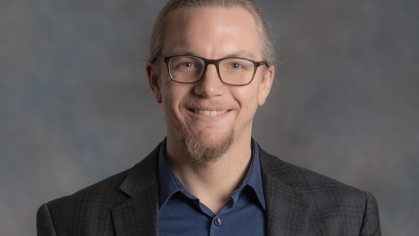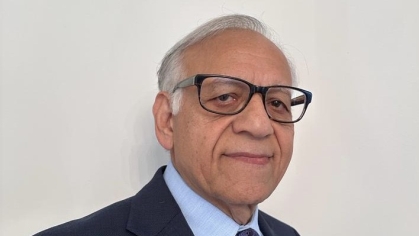E. Koray Akdoğan Wins ASM Materials Education Foundation Genome Toolkit Award

By supporting education and research, the ASM Materials Education Foundation aims to advances scientific and engineering knowledge. E. Koray Akdoğan, an associate teaching professor and undergraduate program director in the School of Engineering Department of Materials Science and Engineering (MSE) was recently awarded a coveted ASM Materials Education Foundation Materials Genome Toolkit Award.
His winning proposal, “Materials Education by Quantitative Design: A Computational Approach for Materials Science & Engineering Education in the 21st Century,” gives the MSE department an exclusive, three-year license to the toolkit, which is comprised of the ThermoCalcTM thermodynamics code, DICTRA multi-component diffusion code, PRISMA precipitation simulator, and a host of databases, and valued at $100,000.
According to Akdoğan, the Thermo-Calc™ software platform -- which is known as the science and industry standard for computational materials science and engineering – will provide MSE students with the opportunity to learn the use of a 21st-century computational design tool.
Thermo-Calc™ enables materials scientists and engineers to model underlying chemical thermodynamics and phase equilibria that govern complex materials systems as a function of chemical composition, temperature, and pressure.
Additionally, DICTRA and PRISMA extend Thermo-Calc™’s capabilities to the computational solid state mass transport and microstructural evolution realms, thus empowering materials science engineers to carry out simulations of materials processing technologies such as metal casting and additive manufacturing. “The scope of the Thermo-Calc™ software toolkit ‘s use encompasses the full spectrum of materials science and engineering,” Akdoğan notes.
Akdoğan will spearhead the toolkit’s implementation in select courses such as thermodynamics, kinetics and diffusion, physical metallurgy, and materials micro-processing. It will also be implemented in all undergraduate research programs, as well as MSE senior capstone projects. These students will compete in the ASM Undergraduate Design Competition where they will show their skilled use of the toolkit.
Akdoğan insists that such quantitative design skills involving the use of advanced computational methodologies are crucial to new materials discovery and innovation, for which Thermo-Calc™ is a time-tested conduit.
The Materials Genome Toolkit program is supported by the NIST-funded Center for Hierarchical Materials Design (CHiMaD) as part of the national Materials Genome Initiative (MGI) under a special arrangement with Thermo-Calc Software AB, Stockholm, Sweden. The program is being administered by the ASM Computational Materials Data Network in partnership with the ASM Materials Education Foundation.

